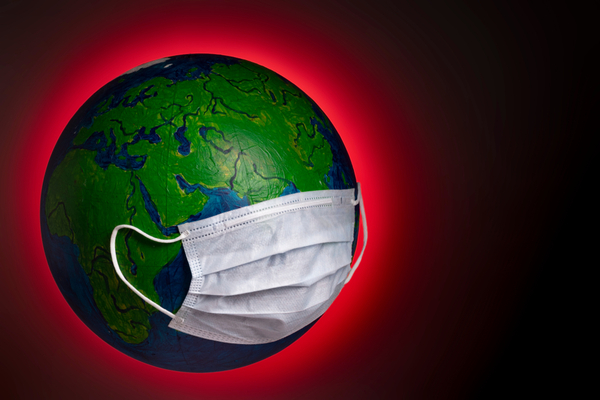Ahead of World Refugee Day, Plan International Canada has released a report on the layered crises and heightened risks refugee and displaced women and girls face in light of the COVID-19 pandemic. The report, titled Close to Contagion: The Impacts of COVID-19 on displaced and refugee girls and young women, shows that refugee and displaced girls around the world face considerably larger challenges due to the COVID-19 pandemic. This further curtails the realization of their fundamental human rights to education, productive livelihoods, sexual and reproductive health and rights, and protection from violence, exploitation and abuse.
Girls living in fragile, conflict, disaster-affected, or less developed countries with weaker health and social systems, are acutely vulnerable to a diversion of resources away from other key medical and social services that supported them pre-COVID-19, such as sexual and reproductive health and rights services and protection against violence. This adds a risk that refugee communities face in this pandemic. Without urgent action, the immediate and long-lasting consequences of COVID-19 for girls, particularly displaced girls, will be abuse, violence, neglect, fear and hunger, fueled by existing gender inequality.
“For refugee and displaced girls, this is a triple crisis: the crisis of displacement, the COVID-19 pandemic and the risks they experience simply because they are young and female,” says Dr. Tanjina Mirza, Plan International Canada’s chief programs officer and interim co-CEO. “It’s imperative that their unique needs and rights are addressed in global and local COVID-19 responses. In addition, we need to hear the voices and solutions of those impacted – nothing should be decided without them.”
Adolescent girls face human rights violations disproportionately and are among the most excluded and invisible people on earth. Yet, they are also inherently powerful. The risks refugee girls face, which have been exacerbated by COVID-19, include gender-based violence, sexual exploitation, harmful gender norms that lead to child early and forced marriage or increased expectations to take on home and care work. It also means that those who struggled to access education before the pandemic may never return to their studies.
Findings from consultations with adolescent girls and young women show that despite the challenges they face, adolescent girls demonstrate resilience, leadership, entrepreneurial skills, a desire to help others and optimism for the future.
“I want to do a job after completing my education and work for the welfare of this community,” said a 12-year-old Rohingya girl living in Bangladesh, taken from previous Plan International research.
Crisis brings inequality and issues that have long been left unaddressed into sharper focus,” says Séverine Meyer, Plan International Canada’s Senior Program Manager, Emergencies & Humanitarian Assistance. “COVID-19 has exacerbated the risks that refugee and displaced girls face, but it also provides an opportunity to reset humanitarian response in a way that empowers them. We cannot return to a pre-pandemic normal, because ‘normal’ wasn’t working for adolescent girls.”
Plan International Canada calls on powerholders and stakeholders worldwide to listen to adolescent girls and take action. Supporting girls and young women’s resilience and agency is critical to any effective preparation for, or in response to, the current COVID-19 crisis and other intersecting crises in refugee camps and settlements.
—
Photo Credit: Vikentiy Elizarov / Shutterstock.com
